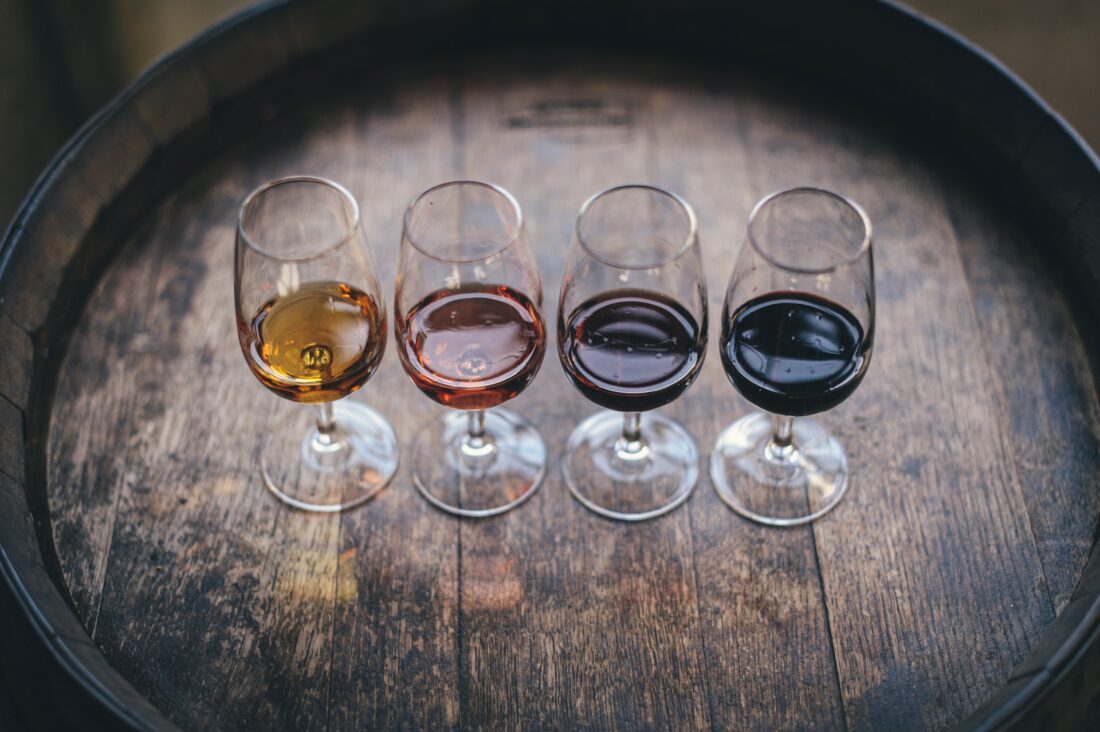
Wine is a popular alcoholic drink that is enjoyed by many people. However, some individuals may notice that they feel sleepier after drinking wine compared to other alcoholic beverages. This can be a frustrating experience, especially if they want to enjoy a glass of wine with dinner or during a social event. But why does wine make some people feel sleepy?
Table of Contents
The Science Behind Alcohol and Sleepiness
Alcohol is a depressant that affects the central nervous system, causing a range of physiological and psychological effects. One of the most common effects of alcohol consumption is sleepiness.
Alcohol raises the body’s level of epinephrine, a stress hormone that increases the heart rate and blood pressure. However, when the alcohol wears off, the body experiences a drop in epinephrine levels, leading to feelings of fatigue and sleepiness.
Another factor that may contribute to the sleepiness caused by alcohol is melatonin, a natural hormone that helps regulate sleep-wake cycles. Red wine, in particular, contains melatonin, which acts as a sedative, signaling the body that it is time to rest and sleep. This may explain why some people feel more tired after drinking red wine compared to other types of alcohol.
In addition, alcohol consumption before bed can reduce sleep latency, or the amount of time it takes to fall asleep. This is due to alcohol’s sedative effects, which range in intensity depending on one’s blood-alcohol content. However, while alcohol may help people fall asleep faster, it can also disrupt sleep quality, leading to frequent awakenings and less restful sleep.
 photo credit: i1.pickpik.com
photo credit: i1.pickpik.com
Effects of Wine on the Nervous System
Wine is a popular alcoholic beverage that is enjoyed by many people around the world. However, it is known to cause drowsiness and sleepiness in some individuals. This section will explore the effects of wine on the nervous system.
Wine and the Central Nervous System
Alcohol, the main ingredient in wine, is a depressant that affects the central nervous system (CNS). It can slow down brain activity, resulting in feelings of relaxation and drowsiness. Wine contains melatonin, a hormone that supports the maintenance of our circadian rhythm and sleep patterns. Because it contains this hormone, we can infer that it has a sedative effect and makes you feel sleepy.
When wine is consumed, it is quickly absorbed into the bloodstream and travels to the brain. Once in the brain, alcohol affects the neurotransmitters, which are chemicals that transmit signals between nerve cells. Alcohol enhances the effects of the neurotransmitter GABA (gamma-aminobutyric acid), which is responsible for inhibiting brain activity. This leads to a decrease in anxiety and an increase in relaxation.
Wine and the Peripheral Nervous System
The peripheral nervous system (PNS) is responsible for transmitting signals between the brain and the rest of the body. Alcohol can affect the PNS by slowing down the transmission of signals. This can result in a decrease in coordination, balance, and reaction time.
Additionally, alcohol can affect the autonomic nervous system (ANS), which controls involuntary functions such as heart rate, breathing, and digestion. Alcohol can cause the ANS to become imbalanced, leading to an increase in heart rate and a decrease in blood pressure.
Wine’s Impact on Sleep Patterns
Wine is a popular alcoholic beverage enjoyed by many people around the world. However, some individuals may experience sleepiness after consuming wine. This section will explore the impact of wine on sleep patterns and the reasons behind this phenomenon.
Sleep Cycle Disruption
Wine can disrupt the sleep cycle due to its impact on the production of melatonin, a hormone that regulates sleep-wake cycles. According to a study published in the Journal of Clinical Sleep Medicine, alcohol consumption can reduce melatonin production, leading to sleep disturbances and disruptions in the circadian rhythm. This disruption can result in difficulty falling asleep, frequent awakenings during the night, and early morning awakenings.
Sleep Quality
Wine can also negatively impact the quality of sleep. While alcohol may help individuals fall asleep faster, it can lead to shallow and fragmented sleep. This is because alcohol is a central nervous system depressant that can cause breathing problems, snoring, and sleep apnea. In addition, alcohol can also decrease the amount of rapid eye movement (REM) sleep, which is an important stage of the sleep cycle for memory consolidation and cognitive function.
Alcohol and Melatonin Production
Alcohol consumption can affect the production of melatonin in the body. Melatonin is a hormone that regulates sleep and wake cycles, and it is naturally produced by the pineal gland in the brain.
According to Healthline, when alcohol is consumed, it can interfere with the liver’s ability to create certain enzymes that are necessary for the production of melatonin. This can lead to a decrease in melatonin levels, which can disrupt sleep patterns and make a person feel sleepy.
Furthermore, wine specifically has been found to contain melatonin. The primary ingredient in wine, grapes, contains melatonin naturally. Therefore, the sleepiness one experiences after drinking wine may be due to the melatonin content in the wine.
It is also important to note that while alcohol may initially make a person feel drowsy, it can actually interfere with the quality of sleep. According to a New York Times article, alcohol can cause disruptions in the REM stage of sleep, which is important for restorative sleep. This can lead to feeling groggy or fatigued even after a full night’s sleep.
Understanding the Role of Tannins
Tannins are compounds found in the skins, seeds, and stems of grapes. They are also present in other fruits, nuts, and plants. Tannins play a crucial role in the taste, texture, and aging of wine.
When you drink wine, the tannins interact with your saliva, creating a dry, puckering sensation in your mouth. This is why some wines are described as “astringent.” Tannins also help to preserve the wine by acting as a natural preservative.
But what do tannins have to do with making you sleepy? It turns out that tannins may be one of the reasons why wine can make you feel drowsy.
Tannins can bind to proteins in your saliva and digestive system, making it harder for your body to absorb iron. This can lead to a condition called iron-deficiency anemia, which can cause fatigue and sleepiness.
An article by Bustle suggests that tannins may also interact with neurotransmitters in your brain, affecting your sleep-wake cycle.
It’s important to note that not all wines have the same amount of tannins. Red wines tend to have higher levels of tannins than white wines, which may explain why some people feel sleepier after drinking red wine.
Wine Varietals and Their Effects
When it comes to wine, different varietals can have varying effects on the body. While all types of wine contain alcohol, the specific blend of chemicals and compounds in each varietal can impact how quickly and intensely the alcohol affects the body.
Red Wine
Red wine is often associated with feelings of relaxation and sleepiness. This is because red wine contains high levels of melatonin, a hormone that helps regulate sleep-wake cycles. Additionally, red wine contains a compound called resveratrol, which has been shown to have a calming effect on the body.
However, it’s important to note that not all red wines are created equal. Some varietals, such as Cabernet Sauvignon and Syrah, tend to have a higher alcohol content and therefore may have a more intense effect on the body.
White Wine
While white wine also contains alcohol, it typically has lower levels of melatonin and other compounds that can cause drowsiness. However, white wine can still have a relaxing effect on the body, particularly when consumed in moderation.
One factor that can impact the effects of white wine is its sweetness level. Sweeter white wines, such as Riesling and Moscato, may cause a quicker spike in blood sugar levels, which can lead to feelings of drowsiness.
How to Mitigate Wine-Induced Sleepiness
If you find yourself feeling sleepy after drinking wine, there are a few things you can do to mitigate this effect. Here are some tips to help you enjoy your wine without feeling too drowsy:
- Drink water: Alcohol can dehydrate you, so it’s important to drink water while you’re drinking wine. This can help prevent the drowsiness that often comes with dehydration.
- Eat food: Eating a meal or snack while drinking wine can help slow down the absorption of alcohol into your bloodstream. This can help prevent the sudden spike in blood alcohol content that can lead to sleepiness.
- Choose your wine wisely: Some wines are higher in alcohol content than others. If you find that you’re particularly sensitive to the effects of alcohol, consider choosing a lower-alcohol wine.
- Drink slowly: Sipping your wine slowly can help prevent the sudden spike in blood alcohol content that can lead to sleepiness. It can also help you savor the flavors of the wine.
- Avoid drinking too much: It’s important to drink in moderation. Drinking too much wine can lead to a host of negative effects, including sleepiness.
By following these tips, you can enjoy your wine without feeling too drowsy. Remember, everyone’s body reacts differently to alcohol, so it’s important to listen to your body and drink responsibly.
Frequently Asked Questions
Can drinking wine cause drowsiness?
Yes. Wine can cause drowsiness because it contains alcohol, which is a depressant. Alcohol affects the neurotransmitters in the brain, including gamma-aminobutyric acid (GABA), serotonin, and glutamate, which can lead to feelings of sleepiness.
Why does red wine make some people sleepy?
Red wine can make some people sleepy because it contains melatonin, a hormone that helps regulate the sleep-wake cycle. Melatonin is found in grapes, which are the primary ingredient in wine, especially red wine.
Is there a scientific explanation for wine-induced sleepiness?
Yes. Wine-induced sleepiness has a scientific explanation. Wine contains ethanol, which is a central nervous system depressant. Ethanol affects the neurotransmitters in the brain, leading to feelings of sleepiness.
How does the body process wine and why does it make some people sleepy?
The body processes wine through the liver, which breaks down the ethanol in wine into acetaldehyde and then into acetic acid. The liver can only process a certain amount of alcohol per hour, so drinking too much wine can lead to a buildup of ethanol in the bloodstream, which can cause drowsiness.
Are there any tips to avoid feeling sleepy after drinking wine?
Yes. There are several ways to avoid feeling sleepy after drinking wine, such as choosing lighter styles of wine, consuming smaller amounts of alcohol, and drinking plenty of water. Additionally, eating a meal before drinking wine can help slow down the absorption of alcohol into the bloodstream.
Conclusion
The reason why wine makes people sleepy is due to the presence of melatonin in grapes, the primary ingredient in wines, especially red wine. Melatonin is a hormone that helps maintain the body’s circadian rhythm and sleep patterns, inducing sleepiness after drinking wine.
To avoid getting too sleepy when drinking wine, one can consider drinking water in between glasses of wine, eating a meal before drinking, and avoiding drinking wine too close to bedtime. Additionally, it is essential to drink in moderation and be aware of one’s alcohol tolerance levels.
Related Posts
Here are some related posts that might interest you:
- Where Can You “Blend Your Own” Whisky?: This post talks about the trend of homebrewing and how to blend your own whisky. It provides tips and advice on how to get started and what to consider when blending whisky.
- How Long Does an Unopened Bottle of Whiskey Last? A Guide to Shelf Life and Storage: This post provides information on how to properly store whiskey and how long an unopened bottle of whiskey can last. It also includes tips on how to tell if whiskey has gone bad.
- Can You Mix Rum and Tequila? A Bartender’s Perspective: This post discusses the compatibility of rum and tequila and whether or not they can be mixed together. It provides insights and recommendations from bartenders on how to mix these two spirits.
- Rum vs Whiskey: What’s the Difference?: This post compares and contrasts the differences between rum and whiskey. It covers the production process, ingredients, and flavor profiles of both spirits.
- Brandy vs Whiskey: What’s the Difference?: This post explains the differences between brandy and whiskey, including the ingredients, production process, and flavor profiles. It also includes tips on how to enjoy each spirit.



